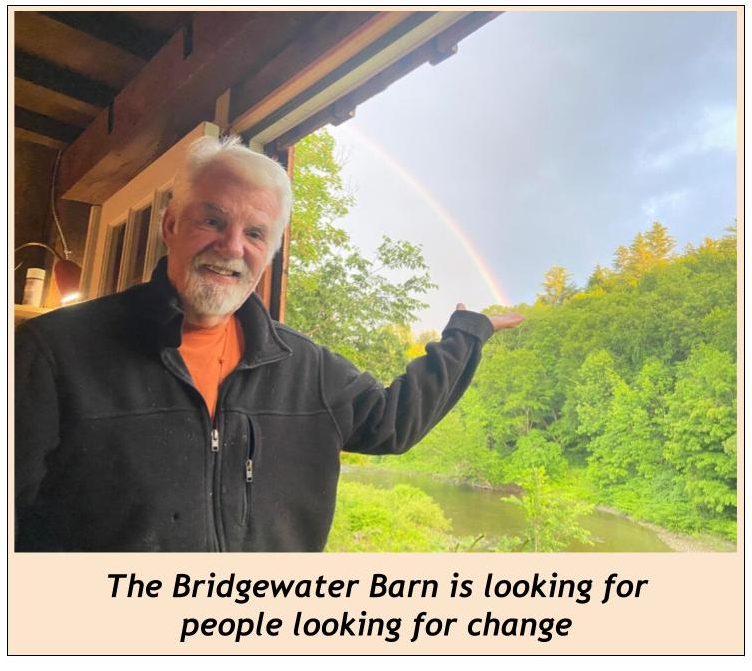by Steve Thurston
The House Energy and Technology Committee will soon review the Senate’s version of the S.5, whose title has been changed from the deceptive “Affordable Heat Act” to the equally deceptive, “An act relating to affordably meeting the mandated greenhouse gas reductions for the thermal sector through electrification, decarbonization, efficiency, and weatherization measures.”
Committee member Gabriel Stebbins called the attention of her colleagues to S.5 at their meeting on March 3, “There is a bill coming to this committee that will bring a lot of questions and, I guess pun intended, heat, and I just want to flag that there is a lot of misinformation being shared, and also when misinformation is sent out it can really scare Vermonters.” Any Vermonter following the evolution of this bill from its beginnings in the Global Warming Solutions Act, which invites anyone to sue the state if emissions goals (the mandated reductions) are not achieved, has a right to be frightened by this bill.
In a recent piece, Don Keelan explained that it would cost him $247,000 to completely transition off of fossil fuels for his home. Mr. Keelan’s cost to divest from fossil fuels may or may not be typical, but here’s another example. We had an energy audit done on our 2800 sf house in 2019. The estimated cost of weatherization was $25-30,000, most of which was air-sealing and adding blown insulation in the attic and spray foam in the crawlspace.
Our mini-split heat pump system cost $14,000 in 2019. It works great for air conditioning (but uses much more electricity than portable fans). It provides enough heat to warm the house until the temperature goes below 30 degrees. The lower the temperature goes the less heat it produces, even blowing cold air as the outdoor unit must go into defrost mode frequently to keep from icing up the coil. Without our existing propane fired hot water baseboard system we would literally freeze.
Our heat pump does not reduce our energy consumption, it increases it because we use it for air conditioning. Most people who get heat pumps will do the same thing, and then wonder why their utility bills are skyrocketing. And they will continue to burn fossil fuels because it’s the only way to heat their homes when heating demand is highest.
Maybe the most efficient (and most expensive) heat pumps will work in super-insulated, spray foamed new homes, but the rest of Vermont’s homes, even if weatherized, will not be habitable with a heat pump as the only source.
We are told to believe that wind and solar will replace conventional generation as we transition off of fossil fuels. Right now in the New England grid that Vermont is part of, wind is providing less than 1% and solar (on a bright, sunny afternoon) is providing only 3% of the energy mix. Natural gas at 50% and nuclear at 30% make up the lions share of our power. New England states have been heavily subsidizing wind and solar for 15 years, spending billions on this unreliable and feckless form of energy. Meanwhile the existing grid must continue as if wind and solar do not exist, because no matter how much wind and solar is built, much of the time it produces nothing. The use of the word “affordability” in S.5 is an insult to Vermonters and they are fully justified in expressing their fear of this legislation and frankly, this legislature.
The author is a retired contractor living in Ferrisburgh.
Categories: Commentary






Tough to lose the world ( and your mind) while we are pretending to be saving our little corner .
Reminds me of my brother’s experience. Early in the 2000’s when he and his wife built their dream home; a lovely ranch, three bed, two bath, fully sealed and super insulated with the most advanced electric heating system available at that time. It wasn’t long before the promised affordability failed to materialize and the electric bill got ahead of them. To try to cut back, they turned off the attic fans that ran all the time. Within a week, or maybe it was two, they were shocked by mold creeping down the walls and covering the ceilings. Fortunately it wasn’t the worst kind of mold so they were able to replace the sheet rock and sell it for a good price.
The largest purveyor of “mis-information” are by far the lobbyists and anointed “experts” pushing their agendas, followed by the legislature themselves. S.5 is but one of scores of bills introduced that will and should “really scare Vermonters” if Vermonters took the initiative to research these bills.
Nothing contained in this legislation nor the GWSA is beneficial to 99% of Vermont residents- only to the lobbyists, climate evangelicals, green energy hucksters and politicians looking to fatten their wallets thru campaign donations.
Ask your legislators:
How much does this bill cost?
Where does the money to pay for it come from?
Who benefits from this?
Demand truthful answers.
Lets continue to use factual examples like Steve’s and call for counter examples from the others.
Sadly, our legislators just don’t give a damn about the well-being of their constituents.
As Mr. Bammo suggests, the handful of lobbyists influencing the “heat” legislation are far more important to our elected representatives than the rest of us who they supposedly exemplify. The theme seems to be that once they have their seat in the State House, it’s to hell with those of us who stupidly and shortsightedly helped them get it. I suppose that’s the way governance in the early segments of the Twentieth
Century is designed to operate. We learn the hard way.